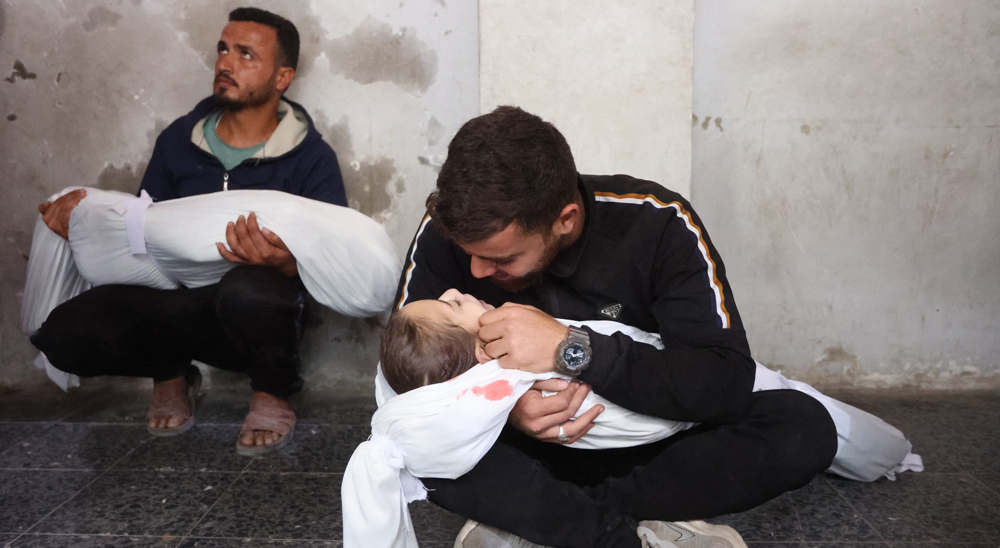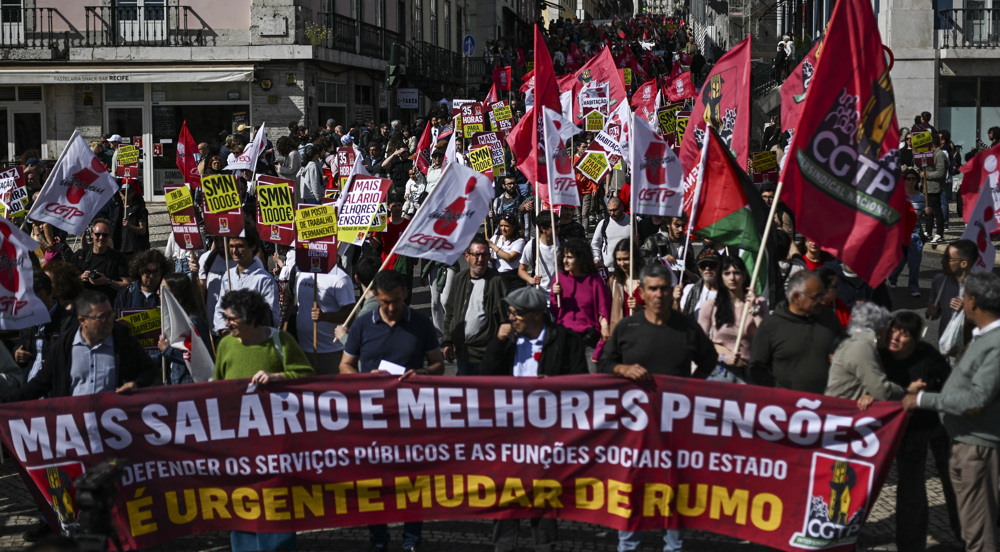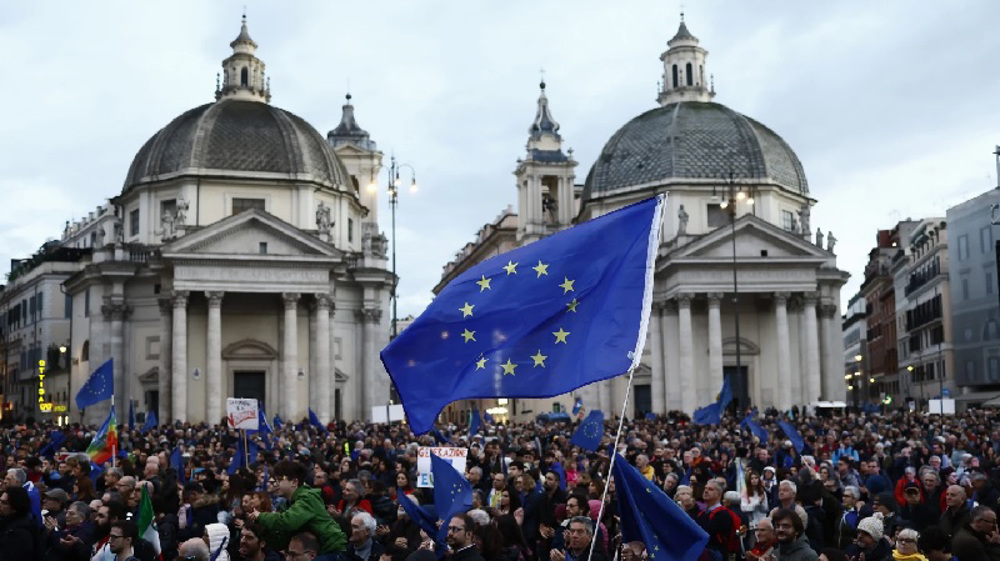Britain, Spain oppose lethal military assistance to Ukraine
The United Kingdom and Spain have expressed opposition to the provision of lethal military aid to Ukraine, highlighting that the settlement of hostilities between pro-Russia forces and the Ukrainian military has to come through dialogue.
“We do not believe that at the moment it would be helpful to provide lethal support to the Ukrainian armed forces,” British Foreign Secretary Philip Hammond said at a news conference with his Spanish counterpart Jose Manuel Garcia Margallo in Madrid on Thursday.
He added, “But we reserve the right to keep that position under review. We are clear that we cannot afford to allow the Ukrainian armed forces to collapse, though I think they are long way from that position at the moment.”
“So the UK will not change its position right now on supplying lethal aid as a consequence of what is going on the ground at the moment,” Hammond pointed out.
Margallo, for his part, said that he “would like the European Union to have a common position” on the question of arms.
The top Spanish diplomat also called for “frank and open dialogue” to bring an end to the Ukrainian conflict.
US mulling lethal aid
US President Barack Obama is considering sending weapons to the Ukrainian military in its fight against pro-Russian forces, but he has not yet decided.
About 30 Democrat and Republican legislators in the House of Representatives want Obama’s administration to provide lethal assistance to Ukraine.
Republican senators John McCain and Lindsey Graham have called a recently inked ceasefire between Kiev and pro-Russians a "failure" and say "it is long past time" to arm Ukraine.
EU plans for Ukraine military aid

The European Union reportedly plans to assist Ukraine with the declared aim of monitoring the ceasefire deal recently signed between the Kiev government and pro-Russia forces in Minsk, Belarus.
The 28-member bloc will send armored vehicles and satellite imagery to monitor the ceasefire in Ukraine, the deputy secretary general for the European External Action Service, Maciej Popowski, said after a meeting between EU defense ministers in the Latvian capital city of Riga on Thursday.
Hundreds of OSCE observers
France’s Defense Minister Jean-Yves Le Drian has said the Organization for Security and Cooperation in Europe (OSCE) would be sending some 400 ceasefire observers to Ukraine.
The EU and NATO have urged pro-Russia forces in Ukraine to allow OSCE observes to monitor the ceasefire deal.
Russia’s reaction

Russian Ambassador to the United Nations Vitaly Churkin has accused Kiev of seeking to “destroy” the ceasefire agreement by calling for the deployment of UN-mandated peacekeepers to eastern Ukraine to enforce the ceasefire deal.
The new deal, endorsed by the leaders of Germany, France, Russia and Ukraine last week, called for an immediate ceasefire and the withdrawal of heavy armaments as the initial steps toward a political settlement of the Ukrainian conflict.
Nearly 5,700 people have been killed and close to a million have been displaced since the armed conflict began in eastern Ukraine in April 2014.
MP/HJL/MHB

Ten Britons accused of war crimes during Israel’s Gaza genocide; complaint filed

Hundreds march in Lisbon to demand better working conditions

Italians against ReArm Europe
Military buildup goes against US offer of diplomacy to reach a deal: Araghchi
Israeli soldiers reveal shocking accounts of ‘Perimeter’ crimes in Gaza: Report
Smotrich: ‘Not a single grain of wheat’ will enter Gaza
Iran to spend $800 mln on buying 15 new oil drilling rigs: NIDC
Netanyahu’s ‘revenge’ policy against Gaza children doomed to failure: Hamas
VIDEO | Gaza healthcare system approaching total collapse
Gaza ‘incredible piece of important real estate,’ Trump tells Netanyahu
Israeli forces kill Palestinian-American teenager in West Bank







 This makes it easy to access the Press TV website
This makes it easy to access the Press TV website